- Learning time
- 30 minutes
- First play time
- 60 minutes
Senators
Designed by: Haig Tahta,Rikki Tahta
In Senators players jostle for positions of power in ancient Rome, by trading goods, gathering support from political figures, and extorting each other!
If that all sounds like a long, rule-laden undertaking of epic proportions, be reassured/disappointed (delete as appropriate) that Senators’ rules are light and the play is fast. Each player starts with five senators, which are basically points, kept record of on a scoretrack. Players are given some cash and dealt three random cards from the goods decks I, II and III which show different numbers of goods (wood, cloth, olives, etc) you will be looking to trade in. These cards are private.
On every turn there is first an Event card flipped from the Events deck. These are sometimes punitive, and sometimes a little helpful. Mostly the former, as they may ask players to pay money to avoid being punished in some way, or reward the player who contributes most cash to a particular cause. They are all fairly straightforward.
Then, on your turn, you have three options to choose from. The first is an auction: the top cards on the goods decks are flipped over, along with the top Office card (more on that in a moment). Starting with the player to your left, everyone gets a chance to make bids on each card – when they’ve done so, you can either sell to the highest bidder or keep the card, paying the matching amount of cash to the highest bidder instead. The four cards can be resolved in any order, so you can sell one in order to pay for another. The owners of the cards place them face-up in front of them: they are public.
The second option is to extort. You may choose one card each player has in public and make them an offer for it – as with the auctions, they can choose to sell, or must pay you the value of your offer in order to keep it! Extortion is a great way of raising cash, or getting cards for cheaper than auction prices.
Finally you can cash-in. This is where three matching goods cards (or three matching numbers) can be sold off for their number value in cash. Selling off three numbers that run in sequence (eg 4,5,6) gets you a big cash bonus, and there’s a delicate sense of luck-pushing as you decide whether to cash in now or hope for your numbers to come up later. Crucially, when any player cashes in, all other players have the opportunity to do the same if they pay the active player 5 cash to do so. And only (or usually only) when cashing in can players advance up the Senator track by paying 10 cash to bribe themselves a new Senator.
The Office cards previously mentioned are little (or big) boons to your game – things that allow you to buy Senators cheaply, to cash in mismatched cards, and to avoid some of the darker events. You can play the game ignoring them, but letting opponents pick them up cheaply is unwise.
The game can end suddenly. Seeded into the Events deck are five War cards. When the fourth War card is drawn, the game ends instantly and the player with the most senators is crowned Caesar – if there is a tie, the richest player wins…
Joe says
Beastly beastly beastly. Any game featuring extortion as an option for play is going to be pretty nasty. Senators is very clever, but not for the faint-hearted. You're competing not only against your sharky opponents, but also the random cruelty of the event deck - but it all makes those little victories taste that much sweeter. Very clever.
The guru's verdict
-
Take That!
Take That!
Loads and loads.
-
Fidget Factor!
Fidget Factor!
Very little.
-
Brain Burn!
Brain Burn!
The rules, once you are familiar with them, are very simple. The ramifications of each action are less so - it's possible to bluff you want a card actually hoping for money, only to be forced to buy it. If you run out of cash, the only option is to 'sell' a senator, losing ground in the political race, for the knock-down price of 5 cash.
-
Again Again!
Again Again!
The event cards come out randomly as do the goods cards. But really the game is made by the players - it's best played as a feisty, extortionate-laden scrap rather than a gentle harvesting and trade of resources.

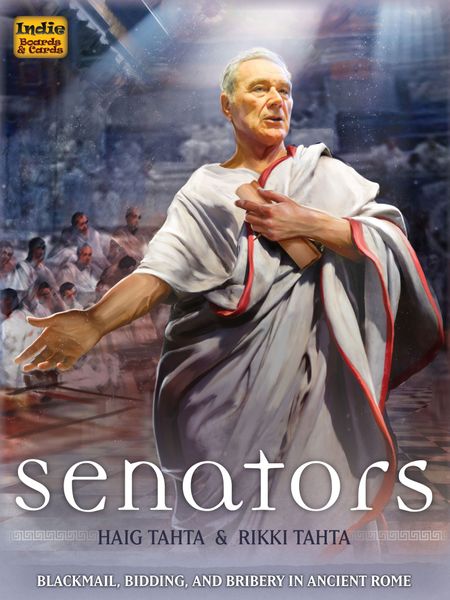
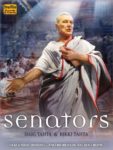
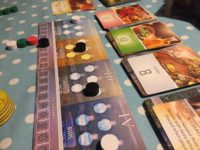


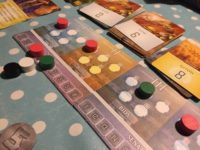



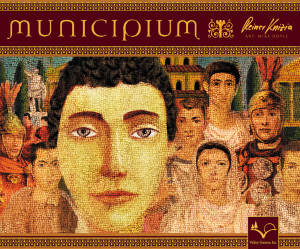
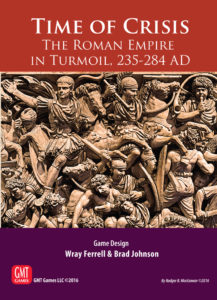
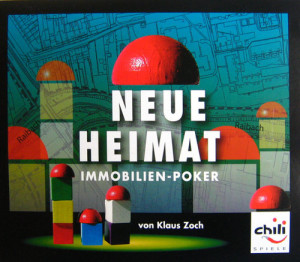
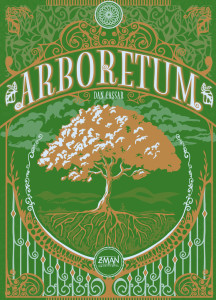
Sam says
A cracking game for players who love a little tactics, a little luck, and a lot of screwage. Definitely not for the gentle puzzlers and perambulators, but big hit at GNG towers: laughter and outrage in equal measure!